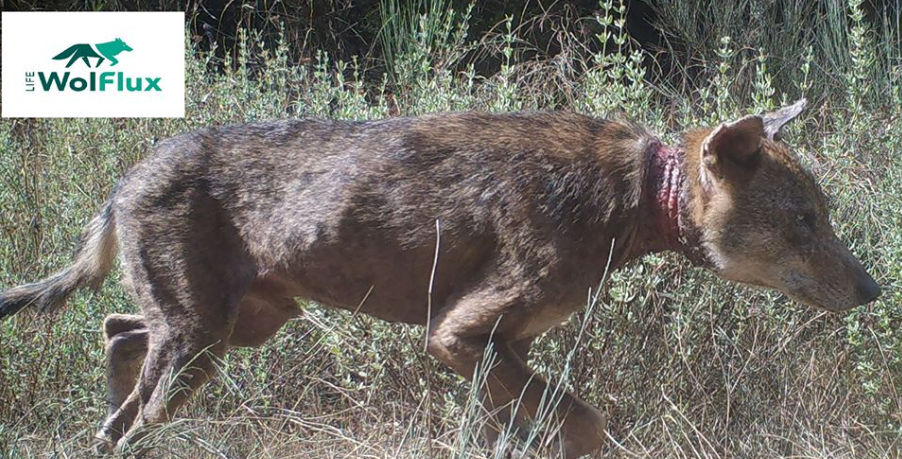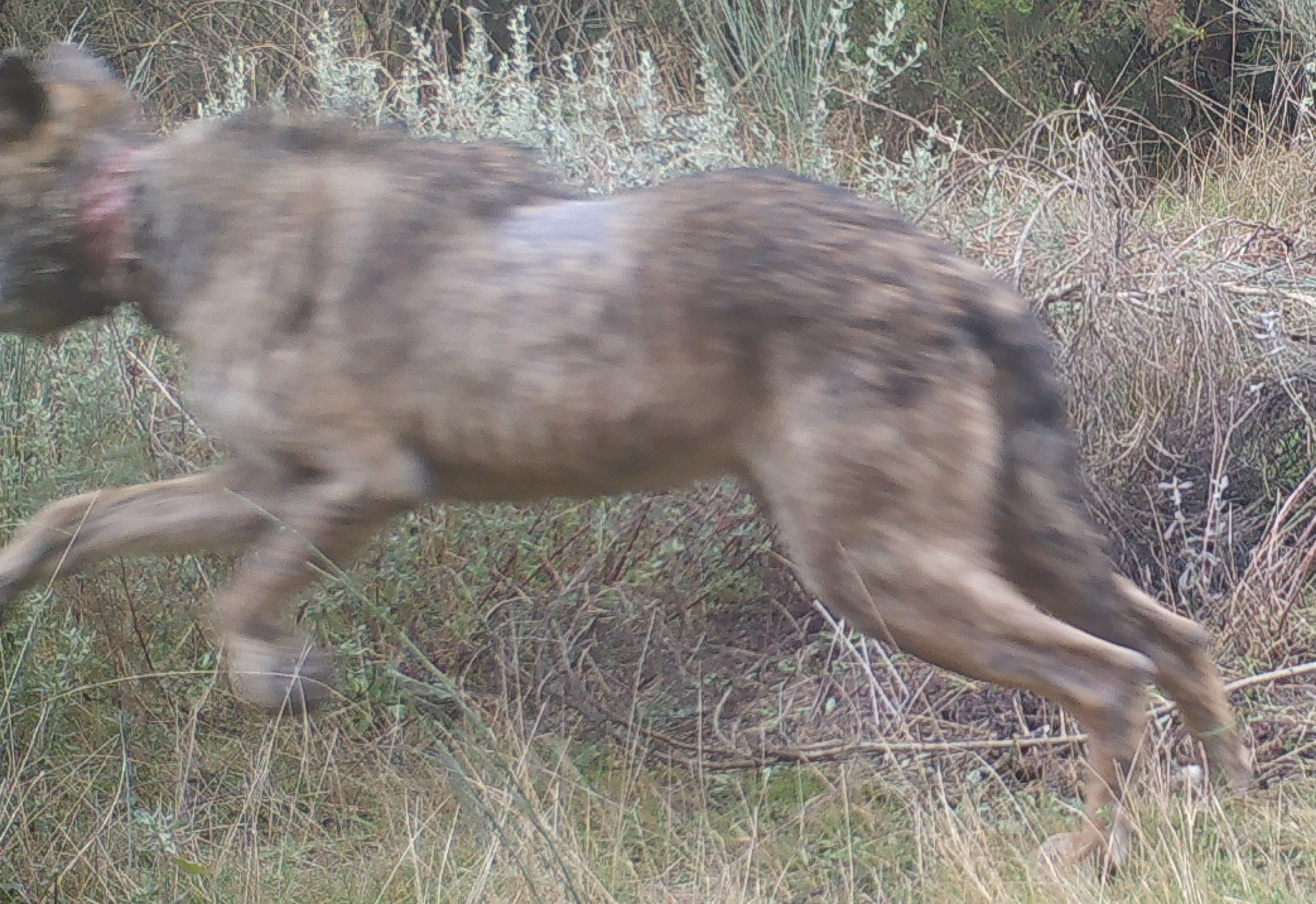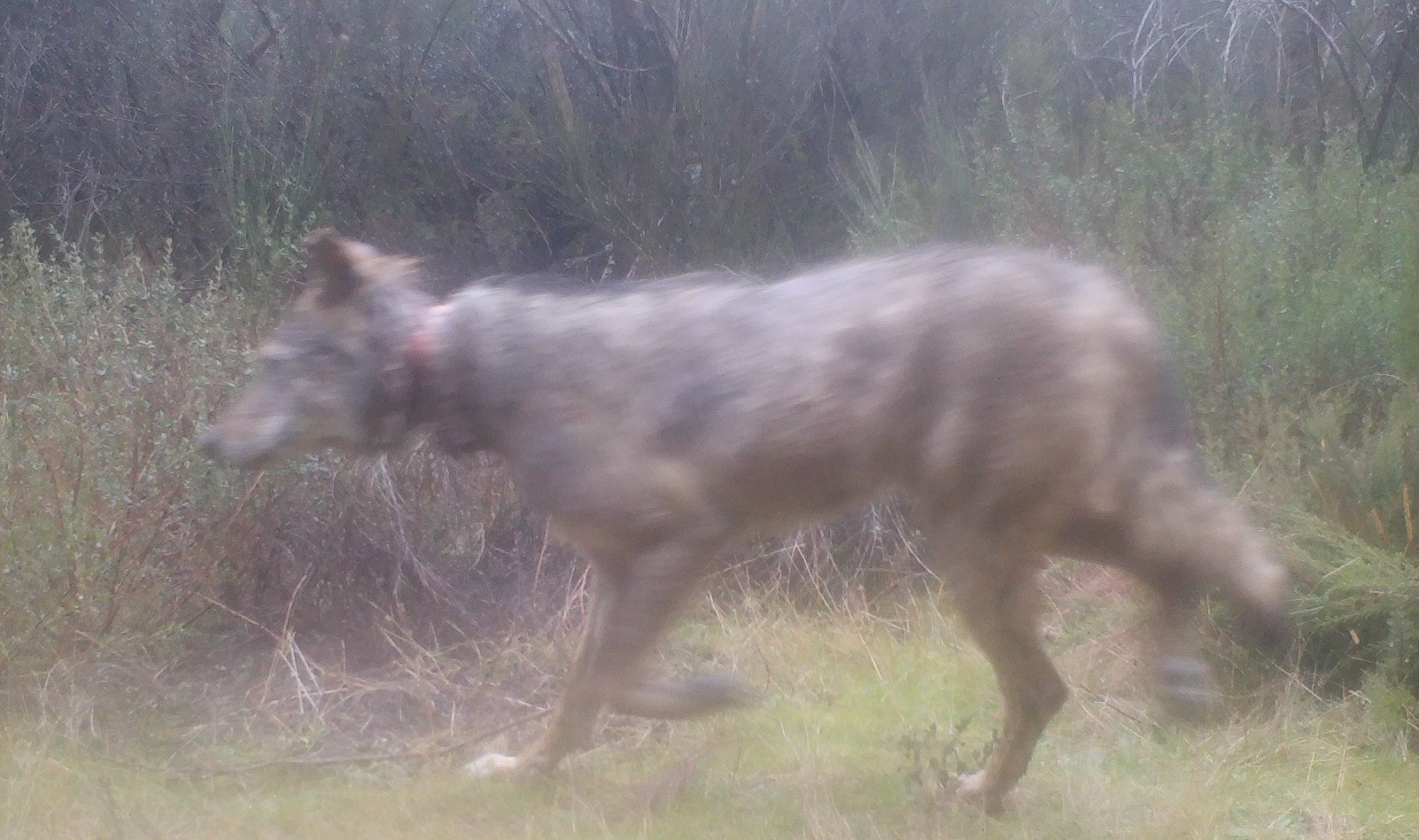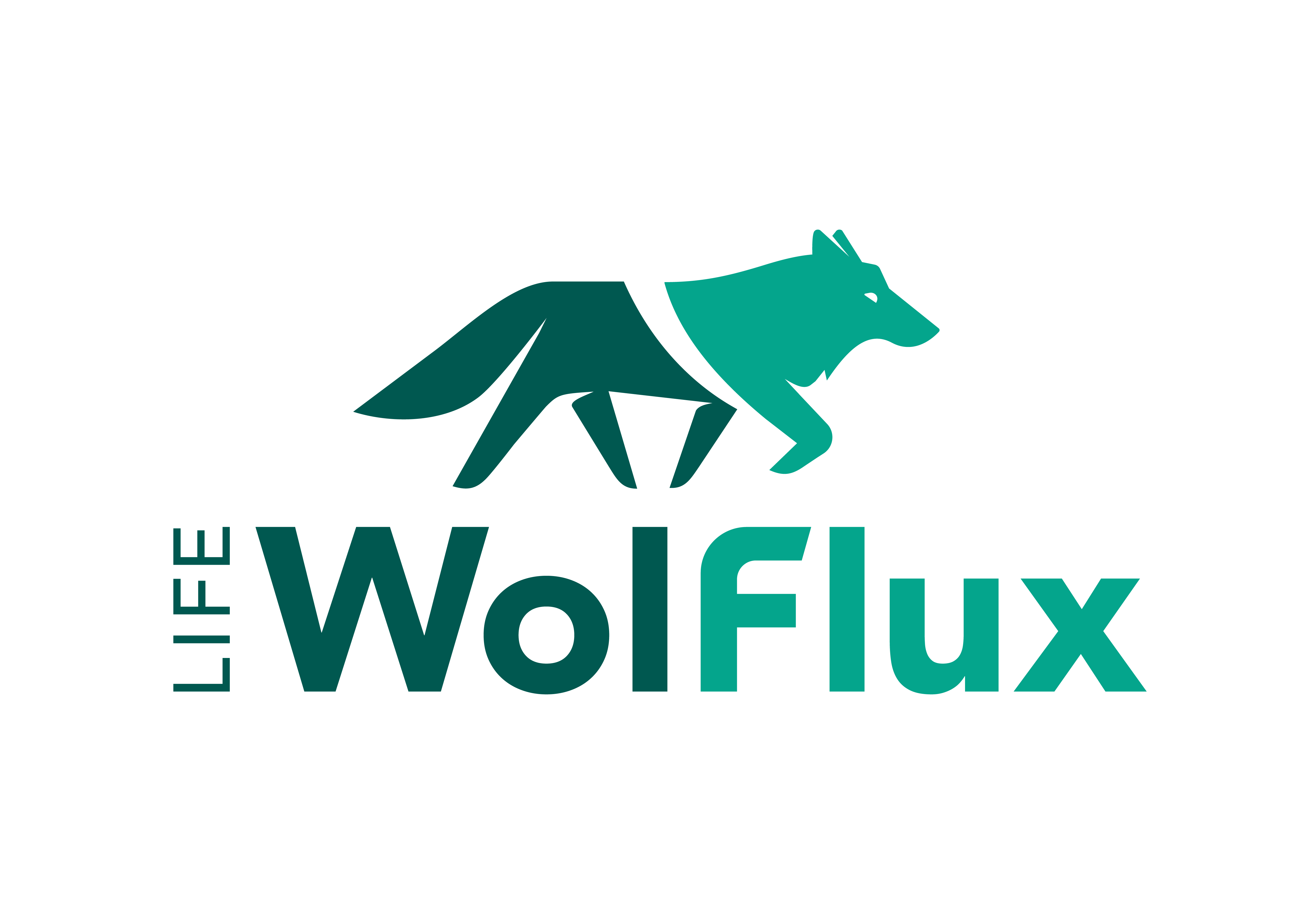A male Iberian wolf south of the Douro River was captured by camera traps with severe injuries caused by an illegal trap. The LIFE WolFlux project is working to reduce social barriers to help in the survival of this species in the region.

A path with obstacles
An adult male Iberian wolf is captured by a camera trap, which is always good news and cause for celebration for anyone working in the study and conservation of this species. But the image is difficult to digest. The Iberian wolf is there, but in extremely poor physical condition. Severe injuries in the neck caused by an illegal trap (a snare aimed for wild boars) are clearly visible and give us a lump in the throat. It shows signs of sarcoptic mange and generalized infection, and its reduced weight is easily seen.
This individual is a faithful portrait of the difficulties faced by the Iberian wolf in Portugal and the precarious situation in which he finds himself: poaching, fragmentation and destruction of habitat, direct human illegal persecution, forest fires, lack of wild prey … Many are the factors that have been an obstacle to its recovery.
Infinite will to live
However, these difficult images are also loaded with a huge symbolism and are a testament to the wolf’s incredible resilience against all odds. This wolf detected by the cameras goes on its way. With difficulty, but carrying on… An extremely inspiring message that reveals this animal’s resilience and capacity to overcome hardship, despite circumstances as adverse as the current ones, particularly the south of the Douro River.
For Duarte Cadete, responsible for the monitoring actions carried out by Zoo Logical within the scope of the LIFE WolFlux project, the message that this adult male transmits to us is clear. “The truth is that they continue to demonstrate an infinite desire to recover, survive, live and generate life (for example, by helping to raise their young pups under very difficult conditions)”.
Duarte Cadete, together with his detection dog Alice, and with the help of the collaborator Mr. Faustino Pinto, carry out monitoring efforts to detect and record the presence of Iberian wolf, through the application of non-invasive methodologies such as camera trapping, location of evidences of the presence of the species (tracks and scats during transects) and obtaining information from local populations. The objective is to find signs of wolf, to understand the current status of the subpopulation south of the Douro River and to support the definition of priority areas for the application of conservation efforts.

A difficult but successful start
This adult male was in a very weak condition at the end of last summer. The neck injuries were deep, he was underweight and appeared to have signs of sarcoptic mange infection which were confirmed later (see photo sequence). Severe neck injuries denoted an agonizing and prolonged retention in an illegal wild boar trap (snare) that would have seriously damaged his general physical condition. Even so, and after spending probably several days struggling to get free, he returned to the pack and remained with it during the critical period of caring for the pups. It will surely have helped ensuring their security and development. The physical condition of this wolf remained quite bad until November, showing worsening signs of the infection and some improvement of the wounds in the neck area.
The work team happily recorded the survival and improvement of this resilient animal in mid-January of this year, when it was last captured by a camera trap, confirming its presence and permanence with the pack.

The role of the LIFE WolFlux project
One of the objectives of the LIFE WolFlux project is to reduce the social barriers that exist south of the Douro River and which put in danger this long-term viability of the Iberian wolf subpopulation.
The project is now hiring a field patrol, whose elements will have the important and fundamental task of surveying sensitive areas south of the Douro river. This surveillance can be critical to help detect illegal traps like the snare that put this wolf’s life at risk. Another important action to raise awarenes about this species and the need for its protection is the work that is being carried out with the local communities, through a social study with key actors and informative sessions, which help to raise awareness in local communities about the threats to this species and the importance of minimizing them.
The LIFE WolFlux project, funded by the European Commission and co-financed by the Endangered Landscapes Program, is being coordinated by Rewilding Portugal, in partnership with Zoo Logical, Rewilding Europe, ATNatureza and the University of Aveiro.